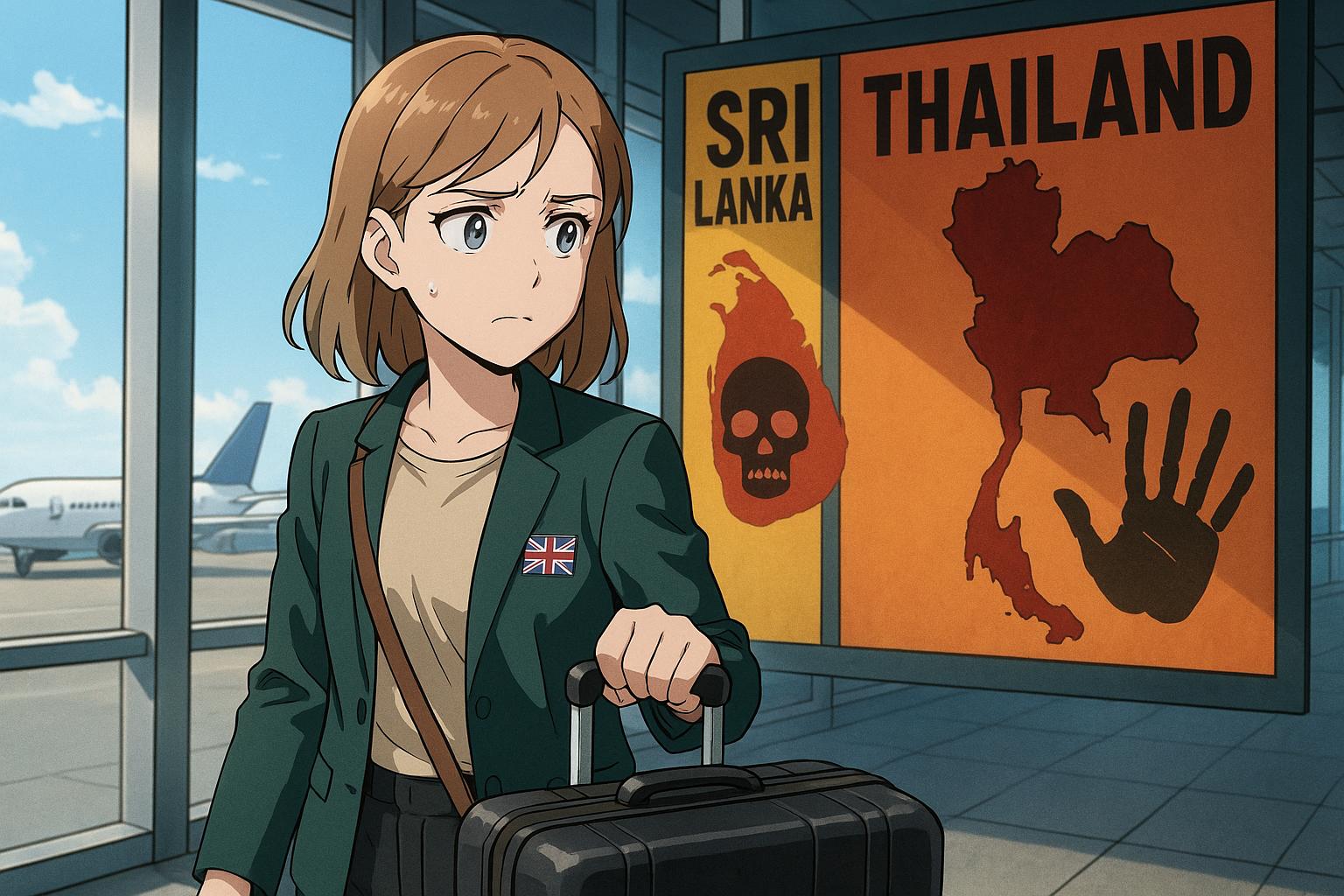As Charlotte May Lee’s plane lifted from Bangkok, excitement filled the air for the 21-year-old beautician from Surrey. But just hours later, her enthusiasm turned to despair at Bandaranaike International Airport in Colombo, Sri Lanka, where authorities found a staggering 101 pounds (46 kilograms) of synthetic 'kush' cannabis hidden in her luggage—the largest drug haul ever discovered at the airport. With heavy penalties looming, including up to 25 years in a maximum-security prison if convicted, the details surrounding her arrest raise alarming questions about the allure of street drugs and the exploitation of vulnerable individuals.
Charlotte had enjoyed a carefree journey leading up to her arrest, documenting her travels on TikTok. Yet, following the discovery of the drugs, she quickly became embroiled in a complex narrative of innocence, alleging that the stash was planted by a mysterious British man known only as 'Dan.' According to her, Dan had taken care of her travel arrangements, which included purchasing her airline ticket and packing her bags under the pretext of a holiday in Sri Lanka. However, authorities, sceptical of her account, are delving deeper into her background and travel history, suspecting that her previous visit to Sri Lanka could hold vital clues.
Police sources have described Charlotte as “desperate and incredibly naive,” noting her inconsistent statements about the so-called accomplice. Despite her claims of ignorance regarding Dan’s whereabouts or contact details, scrutiny reveals potential gaps in her narrative. Local authorities are collaborating with their British counterparts to investigate her history in Thailand, where she had appeared to embrace a lifestyle that some might find disquieting. This includes a recent period working on a party boat designed for revelry—an environment that can easily blend pleasure with peril.
Charlotte's plight comes amid growing concerns about organised crime gangs operating in Thailand, targeting young tourists as unwitting drug mules. Tony Saggers, a former head at the UK’s National Crime Agency, articulated how these gangs lure individuals with false reassurances. “Often the pitch is enticing—claiming a tried-and-tested route with promises of substantial rewards,” he noted. Tragically, this seems to have ensnared not just Charlotte but another British girl, Bella Culley, who was arrested shortly before Charlotte under similar circumstances, highlighting a disturbing trend among British youths exploring the thriving party scene in Southeast Asia.
The ramifications of Charlotte's predicament extend beyond her personal plight; they also implicate broader issues of drug trafficking in the region. In recent years, Sri Lanka has become a significant transit point for international drug trafficking networks exploiting its geographical position. Sri Lankan authorities are acutely aware of the challenges posed by foreign nationals attempting to smuggle narcotics into the country, with intensified efforts to combat such operations recently reported.
Moreover, as the scandal unfolds, there is anxiety over the impact on Sri Lanka’s tourism sector, which is already grappling with the fallout from the COVID-19 pandemic. The arrests of foreign nationals like Charlotte and Bella paint a troubling picture that could deter potential visitors, impacting the livelihoods of those who rely on the tourism economy.
While Charlotte maintains her innocence, asserting she had no knowledge of the drugs, her case serves as a cautionary tale of the perils facing young people tempted by glamour yet vulnerable to exploitation. As international authorities continue their investigation and Charlotte awaits her fate, her situation underlines the complex intersection of youth culture and organised crime—a danger often masked by the allure of beautiful beaches and carefree holidays. The dichotomy between Thailand's sunny façade and the grim realities lurking beneath it is stark, illustrating that the glamour of paradise can quickly become a nightmare.
As both Charlotte May Lee and Bella Culley confront their uncertain futures, their stories reflect broader issues of vulnerability amidst the thrill of travel, signifying the urgent need for awareness about the dangers that await behind the facade of adventure. What remains clear is that the consequences of their actions—intentional or otherwise—could linger far beyond their time in the sun-soaked landscapes of Thailand and Sri Lanka.
Reference Map:
- Paragraph 1 – [1], [2], [4]
- Paragraph 2 – [1], [2], [3]
- Paragraph 3 – [2], [6]
- Paragraph 4 – [4], [5], [7]
- Paragraph 5 – [2], [3], [6]
- Paragraph 6 – [4], [5]
- Paragraph 7 – [1], [2], [3]
Source: Noah Wire Services
